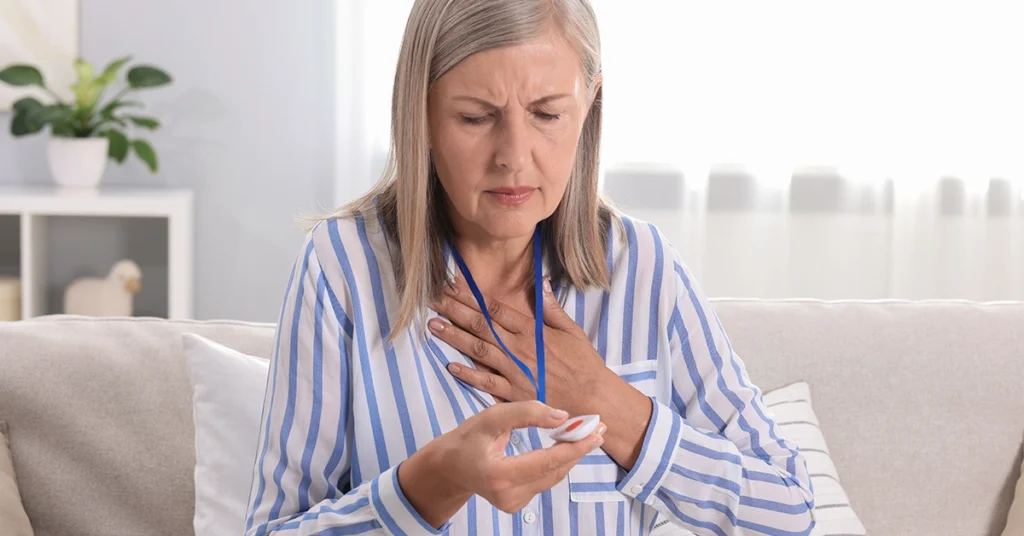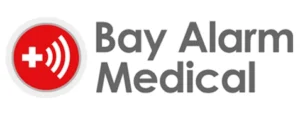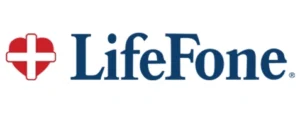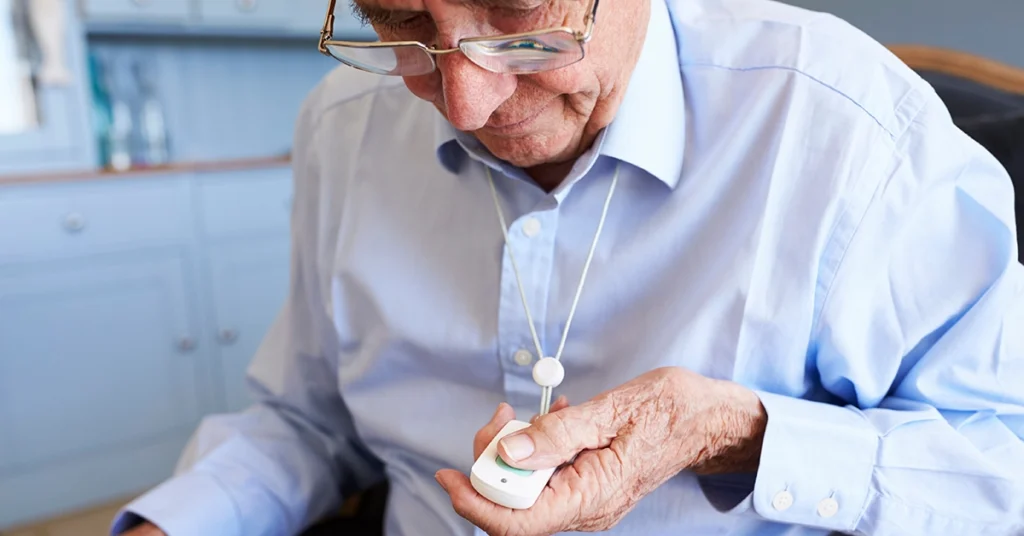The 7 Best Medical Alert Systems in 2024
Reviewed by
- Last Updated
- Reviewed and Fact Checked

Safety and peace of mind are top priorities for seniors living independently and their caregivers. Medical alert systems provide a vital lifeline in emergencies, ensuring help is just a button press away.
But, choosing the right medical alert system can be overwhelming with so many options.
Let’s walk through the best medical alert systems on the market, offering expert advice and detailed insights to help you make an informed decision. We’ll discuss the key features to look for, provide a brief overview of our top seven picks, and dive deep into each product to help you find the perfect fit for your unique needs.
Whether you are looking for an at-home system or a mobile solution, we’ve got you covered. Keep reading to discover the best medical alert system for you or your loved one.
Why Trust Boomer Central?
Commitment to Quality:
We follow strict editorial guidelines to ensure that all information is accurate, fair, and relevant for Baby Boomers. Our recommendations are based on thorough research and expert analysis.
Trusted Partnerships:
We collaborate only with reputable companies and experts to bring you the best resources and products. Our partners are carefully selected to meet high standards of quality and reliability.
Extensive Research:
We evaluate multiple sources and data points for each topic to provide comprehensive and reliable advice tailored to your needs. Our team is dedicated to keeping you informed with up-to-date and trustworthy content.
Top Rated Hearing Aids for Seniors
Brand
Description
Rating
Price
Links

Monthly: $37.95
Quarterly: $113.85

Monthly: $19.95
Quarterly: $98.85
Semi-Annually: $179.70
Annually: $359.40

Monthly: $39.95
Semi-Annually: $37.95/mo
Annually: $34.95/mo

Monthly: $19.95

Monthly: $39.99
Quarterly: $113.97
Annually: $419.88

Monthly: $79.95
Annually: $779.40

Monthly: $30.95
Choosing the Best Medical Alert System for Your Needs
When selecting a medical alert system, it’s essential to consider your unique needs and preferences. Lifestyle, health conditions, and budget should guide your decision-making process.
For seniors who spend most of their time at home, an at-home system with a wide range and reliable backup battery may be the best choice. However, a mobile system with GPS tracking and fall detection might be more suitable if you lead an active lifestyle and frequently venture outside.
It’s also important to evaluate the specific features offered by each system. Look for a device with 24/7 professional monitoring, two-way communication, and a user-friendly design. If you have a history of falls or are at risk of falling, prioritize systems with advanced fall detection devices.
When comparing different options, take the time to read customer reviews and ask for recommendations from friends, family, or healthcare professionals. They may have valuable insights based on their own experiences.
Finally, don’t hesitate to take advantage of trial periods and return policies many medical alert companies offer. This allows you to test the system daily and ensure it meets your expectations before committing to a long-term contract.
By carefully assessing your needs and thoroughly evaluating your options, you can find the best medical alert system to provide the safety, security, and peace of mind you deserve.

Our Best Pick Overall
Medical Guardian MGHome Cellular
Why we like Medical Guardian MGHome Cellular
The Medical Guardian MGHome Cellular is an excellent choice for seniors who want reliable protection at home. With its impressive 1,400-foot range, this system ensures you’re covered throughout your entire house and your yard. The 32-hour backup battery provides added peace of mind during power outages, ensuring you can still get needed help. We appreciate the waterproof help button, which allows you to wear it in the shower or bath – common areas where falls can occur. The system’s easy setup process makes it a great option for seniors who may not be tech-savvy. Medical Guardian’s monitoring services are also known for their quick response times and professional support.
Author’s Pick
MobileHelp Classic
Why we like MobileHelp Classic
For seniors looking for a reliable at-home medical alert system without breaking the bank, the MobileHelp Classic is a top choice. The system’s 1,400-foot range provides ample coverage for most homes, ensuring that you can get help in your bedroom or kitchen. We love that MobileHelp includes a free lockbox with the Classic system, allowing emergency responders to enter your home quickly without damaging your door. The low monthly subscription fee makes this system accessible to seniors on a fixed income while still providing the essential features and services needed for safety and peace of mind. The Classic’s user-friendly design and easy setup process make it an excellent option for seniors who prefer a no-frills, straightforward system.
Honorable Mentions
Medical Alert Smartwatch

Our take on Medical Alert Smartwatch
The Medical Alert Smartwatch is perfect for active seniors who want the protection of a medical alert system without sacrificing style or convenience. This sleek smartwatch blends in seamlessly with everyday attire, making it a discreet option for those who may feel self-conscious about wearing a traditional medical alert device. We appreciate the watch’s GPS tracking feature, which allows loved ones and emergency responders to locate you quickly in case of an emergency, even when you’re away from home. The smartwatch also offers additional health features, such as heart rate monitoring and step tracking, which can help you stay on top of your overall wellness. With its water-resistant design and long battery life, the Medical Alert Smartwatch is a versatile and reliable choice for seniors on the go.
Bay Alarm Medical SOS Home

Our take on Bay Alarm Medical SOS Home
The Bay Alarm Medical SOS Home is a reliable choice for seniors who want added protection against falls. With its optional fall detection feature, the system can automatically alert the monitoring center if it detects a fall, even if you’re unable to press the help button. We appreciate the system’s fast response times, ensuring you get the help you need quickly in an emergency. The 1,000-foot range and waterproof help button provide comprehensive coverage throughout your home, while the free lockbox offers an added layer of security for emergency responders. Bay Alarm Medical’s 30-day risk-free trial allows you to test the system and make sure it meets your needs before committing to a long-term contract.
ADT Medical Alert Plus

Our take on ADT Medical Alert Plus
The ADT Medical Alert Plus is a solid choice for seniors who want a straightforward, no-frills medical alert system from a well-established company. Although its 600-foot range is shorter than other at-home systems, it’s still sufficient for most apartments and smaller homes. The optional fall detection feature provides an extra layer of protection, automatically alerting the monitoring center if a fall is detected. We appreciate the system’s simple setup process and user-friendly design, making it an excellent option for seniors who may not be comfortable with complex technology. With ADT’s long history of providing reliable security services, you can trust that you’ll receive professional, 24/7 monitoring and support when needed.
UnaliWear Kanega Watch

Our take on UnaliWear Kanega Watch
The UnaliWear Kanega Watch is an innovative choice for tech-savvy seniors who want advanced features in a compact, easy-to-use device. We love the watch’s voice-activation capability, which allows you to communicate with the monitoring center hands-free – a significant advantage if you’re unable to press the help button due to mobility issues or an injury. The watch’s fall detection and GPS tracking features provide an extra level of protection both at home and on the go, while the medication reminders help you stay on top of your health and wellness. With its long battery life and ability to connect via Wi-Fi and cellular networks, the Kanega Watch offers seamless coverage and peace of mind wherever your adventures take you.
LifeFone At-Home Cellular

Our take on LifeFone At-Home Cellular
The LifeFone At-Home Cellular is an excellent choice for budget-conscious seniors who want reliable protection and affordable fall detection. With fall detection priced at just $5 per month, LifeFone offers one of the most competitive rates in the industry. The system’s 1,300-foot range provides extensive coverage for larger homes, while the waterproof help button ensures you’re protected even in the shower or bath. We appreciate LifeFone’s price-lock guarantee, which gives you peace of mind knowing that your monthly rate won’t suddenly increase. The system’s user-friendly design and easy installation process make it a great option for seniors who want a straightforward, dependable medical alert solution.
How Medical Alert Systems Work
Medical alert systems are designed to provide quick emergency assistance, offering peace of mind for seniors and their loved ones. These systems typically have three main components: a base unit, a wearable help button, and a monitoring center.
The base unit is the system’s central hub, usually connected to a landline or cellular network. It features a speaker and microphone, allowing two-way communication between the user and the monitoring center. The base unit should be placed in a central location within the home, such as a living room or bedroom.
The wearable help button, often a pendant or wristband, is worn by the user at all times. When the help button is pressed, it sends a signal to the base unit, which then connects to the monitoring center. Some help buttons come standard on fall detection devices, automatically alerting the monitoring center if a fall is detected, even if the user cannot.
When the monitoring center receives an alert, a trained operator will attempt to communicate with the user through the base unit’s speaker. If the user responds and confirms they need help, the operator will dispatch emergency services to their location. If the user cannot respond, the operator will follow a predefined protocol, including contacting emergency services and designated family members or caregivers.
In the event of a power outage, quality medical alert systems have a backup battery in the base unit, ensuring uninterrupted protection. Most base units also feature a range of up to 1,500 feet, allowing users to move freely within their homes and yards while still being covered.
The 24/7 professional monitoring provided by medical alert systems is crucial for the safety and well-being of seniors. Knowing that help is just a button press away can give a sense of security and independence, allowing seniors to age in place confidently.
As you explore different medical alert systems, choose a provider with a reliable monitoring center and a strong reputation for quick response times and exceptional customer service.
Essential Features to Look for in a Medical Alert System
Fall Detection
One of the most important features to look for is fall detection. Falls are a leading cause of injury among seniors, and prompt medical attention can significantly improve the outcome. Medical alert systems with fall detection use advanced sensors to automatically detect when a user has fallen and alert the monitoring center, even if the user cannot press the help button.
GPS Location Tracking
Another key feature is GPS tracking, beneficial for active seniors who spend time outside the home. GPS-enabled medical alert systems with location tracking can pinpoint the user’s location, allowing emergency services to find them quickly in case of an emergency. This feature is also valuable for seniors with dementia or Alzheimer’s who may wander or become disoriented.
Two-Way Communication
Two-way communication is another essential feature, as it allows users to speak directly with the monitoring center through the base unit or wearable device. This enables the user to provide additional information about their situation and receive reassurance from the operator until help arrives.
When evaluating medical alert systems, consider the wearable devices’ battery life and the base unit’s range. Long battery life ensures that the device remains functional even if the user forgets to charge it, while a wide range allows for greater freedom of movement within the home.
Some medical alert systems offer additional features such as medication reminders, daily check-in calls, and caregiver tracking apps. These features can be particularly helpful for seniors with complex medical needs or those who live alone.
Ultimately, the right combination of features for you will depend on your unique situation and priorities. Consider your lifestyle, health concerns, and budget when evaluating different medical alert systems. Feel free to ask questions and compare options to find the system that offers the best value and protection for your needs. Remember, investing in a medical alert system with the right features can provide invaluable peace of mind and support your independence as you age.
Frequently Asked Questions about Medical Alert Systems
How much do medical alert systems cost?
Medical alert system costs vary depending on the provider and features chosen. Basic at-home systems typically range from $20 to $40 per month, while more advanced mobile systems with GPS tracking and fall detection can cost $30 to $80 per month. Some providers also charge one-time activation or equipment fees.
Does Medicare cover medical alert systems?
Medicare does not typically cover the cost of medical alert systems, as they are considered non-medical services. However, some Medicare Advantage plans (Part C) may offer coverage or discounts for medical alert systems. It’s best to check with your specific plan provider to determine if you have any coverage options.
Are medical alert systems waterproof?
Most medical alert systems feature waterproof or water-resistant wearable devices, allowing users to wear them in the shower or bath, where falls are more likely to occur. However, it’s essential to check the specific device’s water-resistance rating and follow the manufacturer’s proper use and maintenance guidelines.
What happens if I accidentally trigger the alarm?
If you accidentally press the help button on your medical alert device, simply inform the monitoring center operator that it was a false alarm when they respond. Monitoring centers are trained to handle accidental activations and will not dispatch emergency services unless you confirm that you need assistance or cannot respond.
Can I use a medical alert system outside my home?
Many medical alert systems offer mobile options that work outside the home. These devices use cellular networks and GPS technology to provide coverage wherever you go. Mobile medical alert systems are ideal for active seniors who enjoy walking, running errands, or traveling, ensuring they can access help whenever and wherever they need it.

